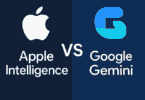At this point, I think that all the people that we are in the modern professional world have heard of Big Data, Internet of Things, Industry 4.0, Artificial Intelligence, Machine learning, etc.
My reflection is born from there, from the undeniable fact that in these last … how much? 5, 10, 15, 20 years? the presence of the internet and the digital in our lives has grown exponentially, like a tsunami that has silently swept the previous thing and has made that without realizing it, today we can not imagine life without mobile, without GPS, without WhatsApp, no computer, no internet, no email, no google, no Wikipedia, no youtube, no Social Networks, … Just look around us to see an unimaginable scenario a few years ago.
So far nothing new, very usual reflections. But I wanted to focus on a very specific aspect of this revolution in which we are immersed, I wanted to put on the screen 🙂 the economic value of the big data and the new business models that this is bringing and will bring with it, with new services, agents, and roles, currently nonexistent, that must be clearly regulated, both through laws and, above all, in sales and contracts between private parties. And for that, it is important that we think about it.
The great question
Whose property is big data? Who has the ability to exploit and profit from the big data, both directly and by selling it to third parties?
It is a complex question with legal implications that how I said will have to be developed, but the reality is that today, the big data is exploited by who knows how to do it and who has the technological and economic capacity to do so: read internet giants, large technology manufacturers, telecommunications operators, banking, and insurance companies, large distributors, automobile manufacturers, etc., among others. There is also the public sector that is supposed to act in this process, in a neutral way, ensuring the privacy of the big data and sharing everything publishable through open-data for private exploitation by the private sector.
Let’s go back to the value of the big data. A few months ago, I saw on youtube an interview with an Accenture Member who told about the big data that at a meal he had had a few days before with an Advisor of an Insurer, this Member had conveyed his surprise at the recent purchase of a hospital on the part of the insurer, since it only saw losses and obsolete assets … .. … ..to what the Counselor answered: “We already know, but its value is intangible … we are paying for the information of its patients”. These big data would be able to have a double (at least) value for the insurer, the first, the direct exploitation of the big data through machine learning algorithms that would allow the adjustment of the risk profiles of its customers and another to market them and sell them, for example, to a pharmacist.
This is a small example of what is already happening, and not only in the US where it seems that these issues are far ahead, but in our closest environment, where large companies of the type I have commented, are buying and selling big data from customers and users.
We could also talk about the very clear case of mobile operators or banks that have the detail of the whole life of their customers, where they go, who they talk to, where and what they spend, …
This is not a criticism or a complaint because they are not really doing anything illegal or ethical, but simply investing a lot and earning all the money they can. Surely they are respecting personal data, which are regulated by the LOPD, but it is true that all this is happening thanks to the lack of digital culture and awareness of the value of user-citizen data, which we do not hesitate to accept/sign, without looking, the user agreements that put us in front, in order to use those digital services that have become “essential” for us.
Going to the specific case of the automotive sector. I recently read the biography of Elon Musk, founder of TESLA, among other companies, which is one of the most innovative and digitized electric car manufacturers. The book told how they equip their cars with a complex sensor system connected to their central, with which they monitor the performance of each element of the car as well as the use of it, offering its customers a service of anticipation of needs and prevention of incidents, totally transparent for the clients, who can get to meet, for example, as they are presented TESLA technician to give them a replacement car because they will fix the air conditioning system that was when the user had not even noticed anything, or when they start the car in the morning they are shown on the car screen, offers from a supermarket they usually go to or from a hamburger that is on the way to work …. all this is happening already.
Speaking of industry 4.0 …, could a manufacturer of industrial machinery offer its customers their already sensitized product, so that it can centrally monitor and exploit the operating big data of all machines installed in different clients with the consequent increase of information about its use, and offer directly or through a third company to which it sells that information, personalized preventive maintenance services or optimization of energy consumption to its customers? … All this and much more can and will be done (if it is not already done ..).
And I return to the issue that raised, who is the information recorded on the living/manufacturing habits of those customers? The manufacturer who installed the sensors and communication elements in the car/machine that allow the registration, digitization, transportation, and exploitation of big data, or …. of the customer who is actually generating the content? Could a customer refuse to provide such big data, it seems that yes, but better yet, could a client keep a part of the benefits that, for example, TESLA may be obtaining from the sale of your big data to local businesses to make their offers or the machine manufacturer may be obtaining from the sale of big data to third parties to offer maintenance or optimization services?
Will there be big data intermediaries that can manage and monetize the information we generate, in a way similar to what banks do with our money?
A new field of play is approaching, with new rules to be built and with enormous business potential for those who are able to understand their possibilities beforehand and to develop new models of exploitation and service, and both individuals and companies must, at least, begin to be aware of our value and role in all this.







